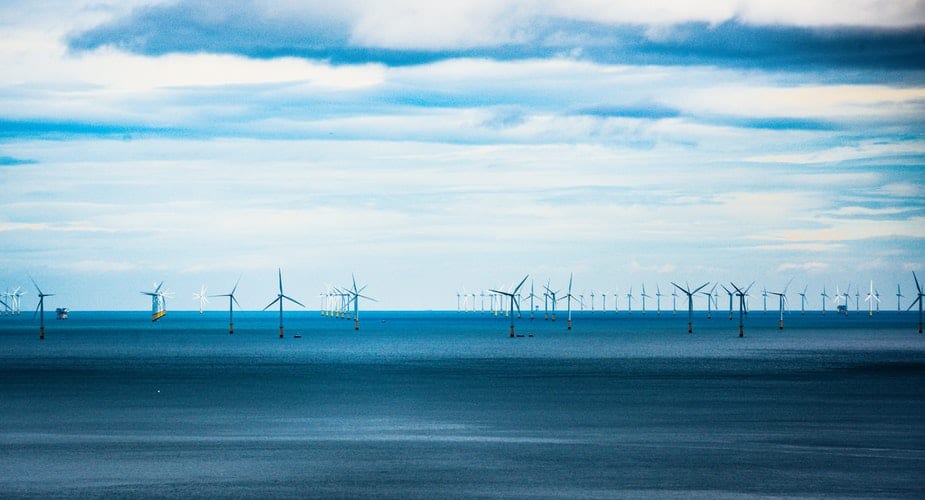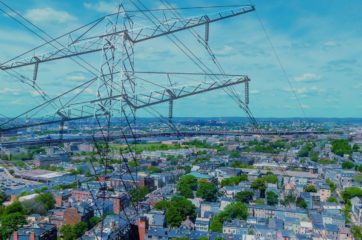BY TIM CRONIN, MAY 24th, 2018
History was made on Wednesday, as Massachusetts officials announced the selection of Vineyard Wind as the winning bid for its sizeable offshore wind procurement. Questions remain, however, over the remaining 800 KW of procurement potential, and viability of the bidding model for similar clean energy projects.
Background
When completed, the project will be the first ever industrial-scale offshore wind farm in the US. Rhode Island previously developed a wind farm off Block Island, west of the Massachusetts site, but with only five turbines, it is a small project in comparison.
The Vineyard Wind proposal selected by Massachusetts, in conjunction with the state’s largest utilities, will develop 800 MW of clean energy to be used by residents of the Cape and Islands, as well as other consumers in the state. The project will produce 6 percent of Massachusetts’ total annual electric load, which is enough to power more than half a million homes.
Community Benefits
Vineyard Wind’s proposal, like those of its competitors, include many critical benefits to the local community, as well as businesses and consumers.
In 2015, Vineyard Power signed a Community Benefits Agreement (CBA) with Vineyard Power (A CABA Member Business). As the first such CBA signed in the US, it ensures that the economic and job benefits of Vineyard Wind’s project remain local throughout the development. Additionally, Vineyard Wind was the only developer to start the necessary federal and state permitting, allowing them to set an early operational start date of 2021. Beginning this process enables Vineyard Wind to maximize the economic and environmental benefits of the project for Bay State residents.
The project also commits $15 million to initiatives focused on making Massachusetts a hub for the national offshore wind industry.
- Wind Accelerator Fund [$10 million]: Attracts investments to upgrade and create facilities and infrastructure necessary for developing offshore wind supply chains and businesses.
- Windward Workforce Program [$2 million]: Recruits and trains Massachusetts residents for offshore wind careers in the state, which will prevent a skills gap and allow for more local hiring.
- Marine Mammals and Wind Fund [$3 million]: Researches and develops new technologies, methods, and systems to protect marine mammals potentially affected by offshore wind development.
Challenges to Clean Energy Procurements
The legal basis for the Massachusetts procurements comes from An Act to Promote Energy Diversity; a 2016 law that requires the state to develop 1,600 MW of offshore wind in the next decade.
The law includes a separate procurement of 1,200 MW for land-based renewables. Continued controversy over the selection process for these projects has led to delays in the procurement of both the offshore and land-based clean energy. The original winner, Northern Pass transmission project in New Hampshire, failed to obtain the necessary local permits back in March of this year. This setback forced Massachusetts to switch gears and select a different proposal based in Maine. Opposition to the new project in Maine is rising, once again calling into question the ability of the state to deliver on the necessary permits.
Similar challenges have not faced offshore wind energy developers as of yet, with general community support for project location and transmission routes. However, delays associated with the land-based procurement process spilled over into the offshore projects, forcing the state to reschedule the announcement of the winning bid by over a month.
National Movement on Offshore Wind
The same day that Massachusetts announced its selection, two other states also announced significant developments in offshore wind. Rhode Island announced its selection of Revolution Wind (also a competitor for the Massachusetts bid) for a 400 MW procurement to further develop the Block Island wind farm. On the same day, New Jersey Governor Phil Murphy signed into law a bill to commit the state to procure 3,500 MW of offshore wind.
Next Steps for Massachusetts
The next step for Massachusetts is to figure out the cost of the Vineyard Wind project and contract negotiations will finish in the next two months. Industry experts believe that the main reason for choosing Vineyard Wind was due to its low cost compared to its competitors.
The state has not set a timeline for Massachusetts’ remaining 800 MW of offshore procurement capacity.
 TIM CRONIN POLICY ASSOCIATE
TIM CRONIN POLICY ASSOCIATE









